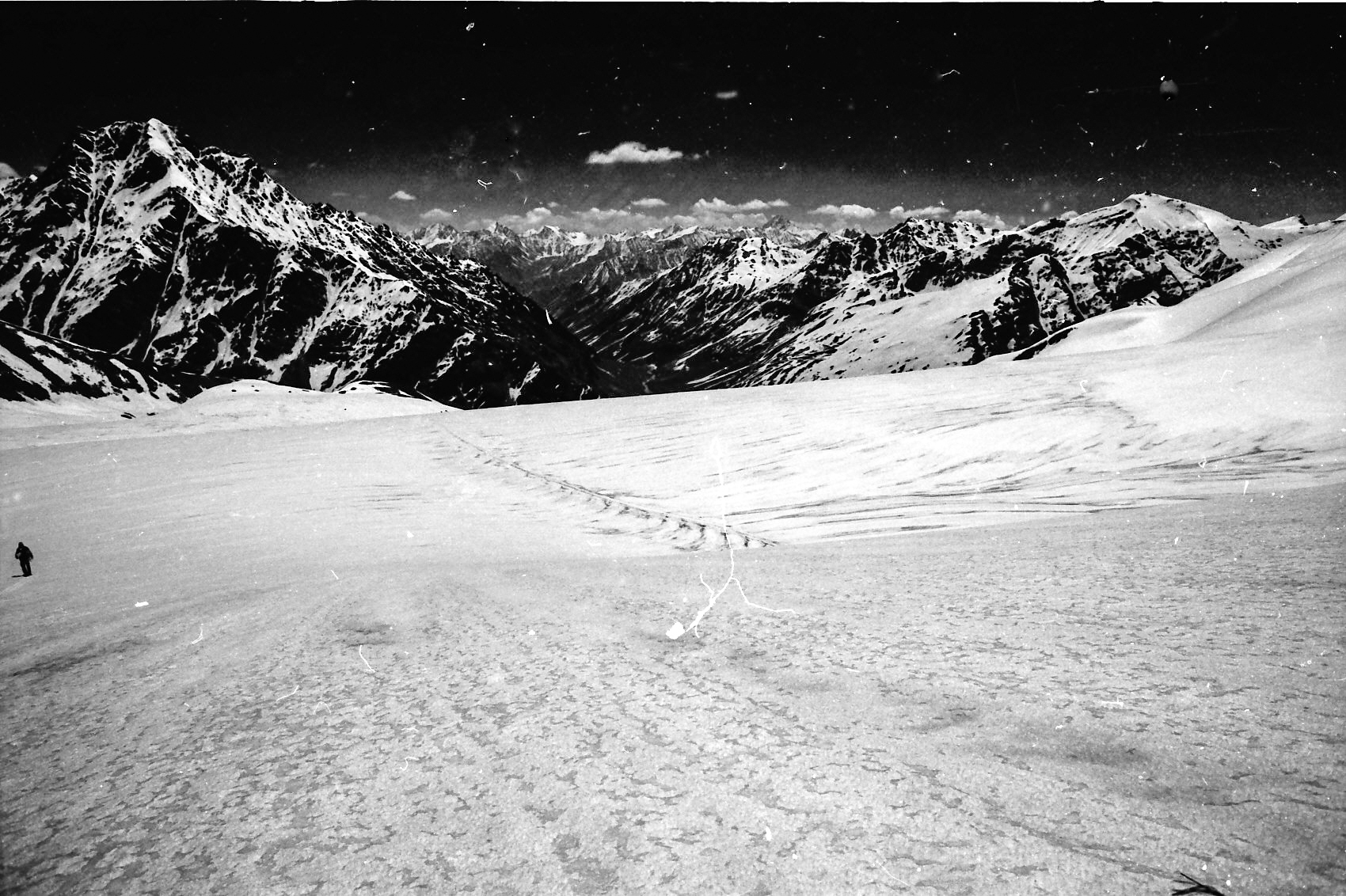This is a photograph I snapped near the top of a Himalayan pass traversing the Parvati-Pin valleys in northern India, on my first travels to the country in 2009. The altitude of this crossing was a pretty humble 15,000 feet.
I worked as a porter for a French trekking guide based in the village of Vashisht, Manali, Himachal Pradesh, and was paid 200 rupees ($4) per day to carry about 45 kilos (90-some pounds) of equipment, including kerosene stoves and camping gear, to serve a group of four Canadian tourists. We trekked 10 days, crossing from a temperate mountain region into a very dry and desolate area where many Tibetan refugees have made their homes. It was much like crossing the Cascades on foot, only to be met by even more enormous mountains on the other side.
